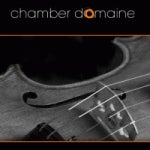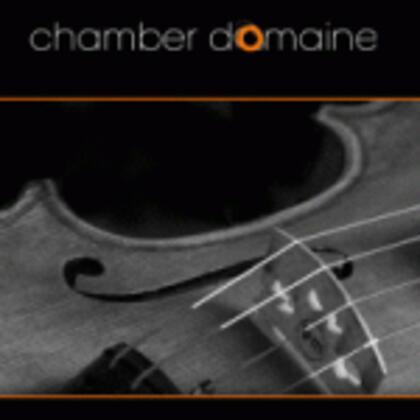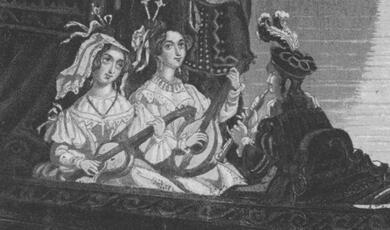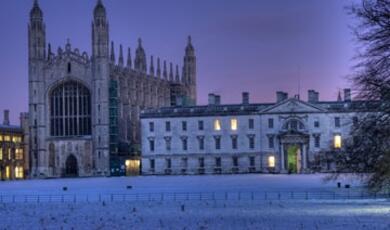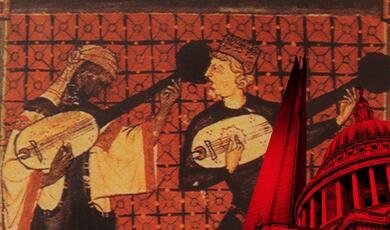The Jazz Age
Share
- Details
- Transcript
- Audio
- Downloads
- Extra Reading
Part of the Made in Britain series of four lectures exploring British instrumental chamber music and song ranging from Bliss through to the music of today, giving a rare opportunity to experience chamber music in an intimate setting. Each concert will be preceded by a talk by Thomas Kemp, Director of Chamber Domaine. Pieces performed: Constant Lambert - Suite in Three Movements for piano Sir William Walton - Facade - An Entertainment Performers: Jane Manning OBE - Narrator Anna Wolstenholme - Flute/Piccolo Katherine Lacy - Clarinet/Bass Clarinet Christian Forshaw - Saxophone Bruce Nockles - Trumpet Adrian Bradbury - Cello Alex Neal - Percussion Stephen De Pledge - Piano Thomas Kemp - Conductor
Download Transcript
THE JAZZ AGE
Thomas Kemp
Ladies and gentlemen, welcome to tonight's concert! Today's concert focuses on music from the jazz age.
Our last concert represented composers that were writing during the First World War. We heard the marvellous Elgar Violin Sonata, which is richly romantic, and very much part of the great 19th Century tradition of Brahms, Mahler and Bruckner - these kind of composers, and it is a marvellous piece. That kind of lyricism continues in the music of Walton, but the actual harmonic language and the means that composers used to express music changed quite a lot, almost immediately with the end of the First World War.
William Walton was born in 1902 in Oldham. To put this into some kind of context, he went to Christchurch Oxford as a chorister, so he was brought up in the great, rich tradition of English choral music, and in fact, later on in his career, he wrote many great choral works, including perhaps his finest piece, which is Belshazzar's Feast, which is a fantastic, blockbuster oratorio, with incredible panache, marvellous orchestration, and some really great, memorable tunes.
The piece that we are going to hear tonight, Walton's Façade, was written very early on in his career. He had pretty much just left Oxford, and he was living in London at two Carlisle Square with the Sitwell Family. By all accounts, the Sitwells were a very eccentric bunch. They were writers, they were antagonists, they were acid to people they did not like, but they were extremely creative and they had a profound influence on Walton.
Constant Lambert was a contemporary of Walton - he was born in 1905. His father was a painter. He came from pretty much the same part of London as the Sitwells. Walton and Lambert were very good friends and colleagues for a very long time, until actually Lambert's untimely death - he was only 46 when he died. But Walton and Lambert were two great British hopes at the beginning of the period after the First World War, along with Arthur Bliss.
To try and put this into some kind of context, the Piano Quartet we played in our first concert, which was written while Arthur Bliss was serving in the army in France in 1915, was written by someone who was a soldier fighting for his country and it was an incredibly nostalgic piece and very romantic. It had quite a lot of pastoral-like tunes, and it was actually very reminiscent of the music of Vaughn Williams or folk music. Bliss, after the War, put this particular piece and a string quartet that he had written into a drawer, and they were never supposed to be played again. It was only until the beginning of this Century that they were actually allowed to be performed again.
Bliss, along with Walton and Lambert, were very much into the new wave of music. To imagine that this new wave just happened all of a sudden would be a little bit naïve, because actually, before the First World War, there had been a lot of developments in music - for example, Stravinsky's Rite of Spring, also Pierrot Lunaire by Schoenberg, which was a very influential piece. These pieces started to have an impact on other composers. The other composer that wrote a piece that is not dissimilar to Façade in some ways is Stravinsky, who wrote A Soldier's Tale, L'histoire du Soldat, and this has a very similar kind of jazzy element, with foxtrots and tangos and popular dances.
Walton actually, similarly to Stravinsky, uses these type of contemporary dances in his music and it is incredibly fun to listen to and it is very upbeat, but some of the poetry explores, if you like, the dark side of the force, so there are these movements in the Walton that have these very deep timbres and rather searching movements, which are not dissimilar to some of the music that you would hear in Pierrot Lunaire.
The piece that we are going to hear tonight emerged after a period of time, because the first performances of Façade in 1921 were held in a private house and there were a lot less numbers than you will hear tonight, and actually, I think there are over forty numbers that could be put into Façade as an entertainment. It was actually Lambert that decided to have a little subtle dig at Schoenberg, that him and Walton would do 21 numbers, because this is the number that you have in Pierrot Lunaire, and in Pierrot Lunaire, you have three lots of seven numbers, and in this particular Façade, you have seven lots of three numbers, so this is something of a subtle dig at Schoenberg. The music, obviously, is influenced by theatre cabaret. It is a very theatrical piece; it's a very amusing piece. In a way, Schoenberg has this element, but it is much more under the surface.
But what is quite interesting, and I think this goes back to the kind of literature and also the style of the music Walton sometimes uses: he often uses music that sounds like Spanish or Italian music, perhaps a 'Mediterraneanisation', if you like, of the music to give it some kind of exotic colour. Actually, the kind of Spanish element exists in Schoenberg because of Commedia dell'arte, the Spanish pirate. All these different characters that exist in Commedia dell'arte inspired composers to write in a specific way. So there are links with something that sounds quite academic and serious, although actually it is not at all, and this piece, which is very fun in a lot of ways.
I think it is very interesting to compare the music of the Weimar era and Walton's, Lambert, Bliss - this kind of jazz era. The Weimar is much more cynical, if you like, and brittle and packing a political punch, if you think of Brecht and Weil writing together in the '20s and '30s. This music is subversive and funny, but it does not necessarily pack a political punch - it is for people to enjoy, and I think that that was one of the overriding feelings that people had after the First World War. This was like Arthur Bliss, he wanted to forget what he'd written in the past and wanted to move on to something new. It was a kind of catharsis of his composition. This was one of the ways that they found a new way of writing music.
In London, jazz became very popular in the '20s, and in fact, there was a famous review, 'From Dover to Dixieland' in 1925, with C. B. Cochrane, the trumpet player. He was the inventor of the 'wa-wa' trumpet, and you can actually hear that in one of the numbers in Façade, and one of the great pieces that Lambert wrote, the Rio Grande. There is lots of this sort of influence of Dixieland and this kind of freedom of expression, but incredibly vibrant rhythmic energy.
Walton went on to perhaps become a much greater composer than Lambert. Lambert was a very interesting character. He was considered to be an absolutely brilliant individual. He, because of his background - his father was an artist - knew a lot of people who were artistic and literary as a young person, and he was extremely interested in literature, painting, poetry, all different types of art, and he was actually a brilliant writer. His autobiography, 'Music Ho!' is one of the best books about a composer's life and times that you can possibly read - it is hilarious, and it is quite bias, but at least it makes a point. There is no mucking about; it is full of great anecdotes, and very interesting observations of that particular period of time between the First and Second Wars.
Perhaps because he was divided in so many directions, Lambert was a very good conductor. He did so much to put ballet on the map. He was one of the key people involved in the Vic Wells Ballet and was the conductor there. He did many distinguished productions, including ballets by Bliss.
He also made a huge splash when he was twenty when Diaghilev, who actually came to the second performance of Walton's Façade, asked Lambert to write a ballet for the Ballet Russes, which was at that particular period probably the most famous artistic powerhouse in Europe, because Stravinsky, Ravel, all these great composers, were writing ballet music for this incredible Russian ballet. There were people like Picasso doing set designs, so it was a very great honour to be asked by this man, although, by all accounts, he was a very difficult individual, very tight with money, and very difficult to get on with. Lambert wrote a piece, Romeo and Juliet, and it was something of a disaster, but Diaghilev messed it up for him and he was very upset about it, but it did get his name out there when he was very young, and he was the only British composer to have the honour of writing a piece for the Ballet Russes.
His love of ballet and his love of design and art served him very well during his career as a conductor conducting ballet, and ironically, just before he died, when Radio 3 had just been formed, he started to do a lot of studio recordings and live concerts, conducting all the great orchestras in Britain, so he was an extremely talented conductor. He had a huge knowledge of not only the music of his time, but also music from a much earlier time. He edited symphonies by William Boyce, who in the 1940s and '50s was virtually an unknown composer, but a great British composer. So Lambert was very much a polymath.
William Walton was very much a focused composer - everything is in the right place in his music. He was quite prolific. He started off as a sort of enfant terrible, and gradually became increasingly an establishment figure. In fact, even before he was knighted, Lambert used to call him 'the late Sir William Walton', so people saw him as a rather grand individual, but I am sure that was Lambert just having a laugh at his friend's expense.
The Lambert piece we are going to hear today is from 1925. It is not the most jazz-orientated piece, but it does show you what can be done with dissonance and it also gives you an indication of what a brilliant pianist Lambert must have been because it is a very virtuosic piece. It is a suite; it has got three movements, but it is through composed, so you listen to it in one long stretch. But it gives you some of the ideas of the colour and sound that composers were striving towards after the First War.
I think to get more inside Lambert's music, you really have to listen to the Rio Grande, which is his most famous piece, and this was very influenced by the Dixieland bands that visited London for the first time in the '20s. You can hear the Duke Ellington sonorities and the almost freely improvised melodies, but there is always a very strong rhythmical energy in all of the music. Walton has this too, but he also has a great talent for lyricism and beautiful melodic interplay.
Edith Sitwell, who wrote the words for Façade, actually gave the first performance as a recitor. She was extremely eccentric. There are television interviews that are made with her which are quite interesting. She had quite a bizarre dress sense, and she used to wear a lot of jewellery. The words are actually fascinating, and what Walton brings out in the music is he uses the rhythm of the words to generate the musical ideas, and the words and music are very closely connected and also the humour that is in the poetry is also connected with the music. It is quite subtle, and there are lots of rhyming things going on and asymmetrical rhythms and it is a brilliant set of poems, although they are complete nonsense. She was part of this great tradition of eccentric, English poetry, along the lines of Lear, and that is where I think these poems fit in.
The idea of a façade, or an evening's entertainment, is actually a very old. If you got back to the classical period, divertimenti were meant to be spread out during the course of an evening. A masque was an evening of dancing, music, words. Façade really, in some respects, is extending this tradition in a new way: the fact that it only became 21 numbers and there are extra numbers that could be added suggests that it could be extended and spread out for a longer period. Also, you will recognise many tunes in this piece that he has taken from popular songs, so that is another element of Walton's tongue-in-cheek style.
Interestingly, the 14th number, the first twelve bars are actually written by Lambert himself, so he had a hand in the composition of that particular piece, and the work overall was dedicated to Lambert, so there is a very strong link between the two. Lambert himself was at the first performance of this piece because he was Walton's friend, and he went on to actually perform this many times and he was a very distinguished interpreter of this particular piece, and apparently his diction was beyond comparison - he was absolutely fantastic. He did actually record this with Edith Sitwell, just before he died, so there is a recording somewhere in the ether where you can actually hear him, and it brings out all the different characters of all these rather strange individuals that are enshrined in the poetry.
To put this into some kind of broader context, the music of the Second Viennese School became much more influential in a way after the Second War in British music. This period - I have mentioned that there is a connection between the Soldier's Tale and Pierrot in Walton's music - he would have been aware of these pieces as a composer - but after the Second War, contemporary music became much more part of this other tradition that was developing, and in a way, although this music was very radical for its time and people did find it quite fresh and new, it is actually very strongly rooted to the past in its lyricism, in its harmony, and in its sense of almost Englishness - it is slightly reserved, tongue-in-cheek, light-hearted, but exquisite. That is something that links, I think, Façade with, say, Elgar, if you listen to Elgar's salon music, with its lightness, beauty and the miniaturism. In Frank Bridge's Songs, for example, you have the same exquisite sense of line and economy of means that you find in this piece. So whilst it was radical in some respects, because it broke away a little bit from the romantic tradition of the 19th Century, and it was fresh and it was lively and fun, it is also very much linked with the previous century in some respects I think.
So, I hope you very much enjoy the concert.
©Thomas Kemp, Gresham College, 6 November 2007
This event was on Tue, 06 Nov 2007
Support Gresham
Gresham College has offered an outstanding education to the public free of charge for over 400 years. Today, Gresham plays an important role in fostering a love of learning and a greater understanding of ourselves and the world around us. Your donation will help to widen our reach and to broaden our audience, allowing more people to benefit from a high-quality education from some of the brightest minds.


 Login
Login
